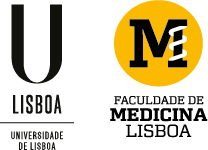What is not known is not diagnosed, and what is not diagnosed is not treated. Measuring blood pressure is a simple and important gesture! However, it will only make a difference if people recognize its worth!
World Hypertension Day was celebrated on 17 May to increase social awareness of this risk factor, in particular its under-diagnosis and undervaluation. This makes a not insignificant proportion of people follow the well-known paths of the natural history of this disease/risk factor, which is Arterial Hypertension.
Based on the cross-sectional study and COR, which assessed the prevalence of various cardiovascular risk factors, in a sample of adults representative of the Portuguese population between 2012 and 2014, there was a prevalence of arterial hypertension of 43%, corresponding to about 3 million Portuguese. I would like to highlight 2 findings of this study that deserve reflection: (1) 37% of the total of hypertensive patients were unaware of the diagnosis of arterial hypertension; (2) Of the patients who were on medication, less than 50% were under control.
Low health literacy and therapeutic reluctance may explain these figures. The absence of symptoms, in most cases at an early stage, constitutes a barrier to timely diagnosis and therapy. Some of the possible consequences of diagnostic and therapeutic inefficiency related to this risk factor are: (1) stroke; (2) Myocardial infarction; (3) Chronic kidney disease; (4) Retinopathy. The control of blood pressure aims to avoid these conditions, promoting not only longevity, but also quality of life.
On this day, there are usually multiple awareness raising actions, including arterial hypertension screening through blood pressure measurement, exemplifying what should be done not only on that day, but throughout the year, either in improvised places for screening, in the doctor’s office or even at home.
Reluctance and therapeutic inertia (on the part of patients and health professionals), should be countered by the critical mass of health care (where medical students are also included), and it is up to all of us to mobilize knowledge and resources to control arterial hypertension. In terms of therapy, I emphasize that the basis is the change in lifestyles - where I highlight the need to reduce daily salt consumption to <5 grams (on average the Portuguese consume 11 grams of salt) and regular exercise (in addition to other individual measures such as weight loss and/or smoking cessation). Drugs, often necessary, are a complement whose existing combinations allow adequate control in a substantial proportion of hypertensive patients.
It is with a spirit of mission that we must look to this day, hoping that in future years, 17 May will be the day of celebration of the Diagnosis and Control of Arterial Hypertension.

Daniel Caldeira
Cardiologist at the Cardiology Service of Santa Maria Hospital – CHULN
Assistant Professor of Cardiology and Clinical Pharmacology of the Faculty of Medicine of the University of Lisbon


